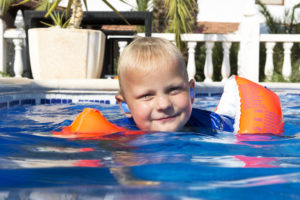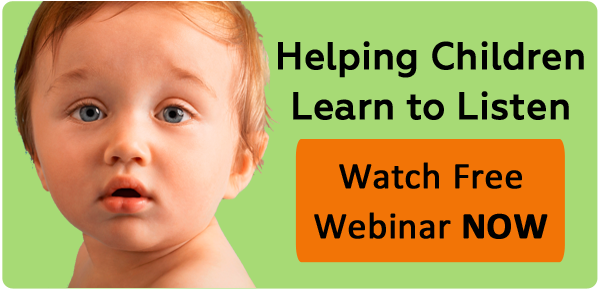
“Throw rocks into the pool one more time and we’re leaving the party,” Jonathan’s parents told him. It was a surprise party for his grandparents’ anniversary. When Jonathan threw in the next handful of pebbles, nothing happened.
Empty threats.
It is an easy trap to fall into. We think if we mention the possible consequences of an action, our child will stop, or if not, at least others will see that we “tried” to make Jonathan stop.
If Jonathan’s parents had been serious, Jonathan would have been out the door before the last ripple hit the pool edge. By leaving they’d be teaching Jonathan to listen to what they say, because what they say means something. Instead they taught Jonathan that what they say and what they do are two different things.
Follow through is an important parenting skill and we may have to miss a party or two if we believe in follow through. Humpf!
What do we get when we show our children that we mean “it”?
We have children that get “it”.
The neurons in their brains make the connection that what mom and dad say and do are important, so, brain, listen up!
When we do what we say, we have to think through and make our words and actions count. We want to under promise and over deliver. Here are a few tips to help.
Understand the impulse control of a three-year-old.
If you ask a three-year-old not to do something, chances are they will do it. This is due to the fact that the impulse control part of the brain, or the prefrontal cortex, is not developed enough to understand how not to do something.
Take the example: Don’t run. All the child’s brain hears is “run”. State behavior requests in the positive: Come with me. Hold my hand. Sit. Stop. Instead of “Tommy, if you throw the ball one more time, I’ll have to take it away” say, “Tommy, roll the ball or I’ll have to put it away.” Also, “Show me how to roll the ball” will help get the desired behavior.
Be short and sweet.
Say it once in a positive way. If the ball gets thrown after you’ve said, “Tommy, roll the ball or I’ll have to put it away,” don’t say another word. Silence is golden. Actions speak louder than words. Take the ball and put it away. There may be crying, but say, “You may choose to do something else. Tomorrow I’ll let you play with the ball again. Tomorrow I’m sure you’ll remember to roll the ball in the house. What would you like to do now?”
Say it in a word.
It’s tomorrow already and Tommy gets a chance to play with the ball. Ask him what you would say about the ball. When Tommy answers, simply say, “Yes. Roll.”
Promise only what you’re prepared to do.
Ever hear these phrases? “We’re never going back…” “You’re grounded for life.” “No television for a month.”
Whatever consequences you choose to connect with an action, make sure they are logical and immediate. Take the ball away—Now! It’s logical and immediate, and doable. Neural pathways for cause and effect are developed in our children’s brains by these kinds of important parenting actions.
Beware of what you say. Your words are powerful. If you say it, mean it. If you mean it, do it.
You are your child’s prefrontal cortex—your words and actions are forming the foundation for a lifetime of decision-making, planning, cognitive flexibility, impulse control, and situational appropriate behavior.

